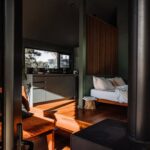Are you passionate about home decor and dreaming of owning your own home decor store? If so, you’re in the right place. This article will guide you through the essential steps of starting a home decor store, from finding your niche in the market to managing and growing your business.
Opening a home decor store requires careful planning and attention to detail. With the right approach, you can turn your love for interior design into a successful business venture. From creating a business plan to selecting inventory, choosing the right location, and marketing your store, each step is crucial for setting up a thriving home decor business.
In this comprehensive guide, we’ll cover everything from the legal requirements of opening a home decor store to designing your store layout and staying ahead of industry trends. Whether you’re an aspiring entrepreneur or an established business owner looking to expand into the world of home decor, this article will provide valuable insights that can help you achieve your goals.
So let’s dive in and explore how you can turn your passion for home decor into a profitable enterprise.
Finding Your Niche in the Home Decor Market
Understanding Your Target Audience
Before opening a home decor store, it is crucial to understand who your target audience is. This includes demographics such as age, income level, and location, as well as psychographics like interests and lifestyle. By understanding who you are trying to reach, you can better tailor your products and marketing efforts to meet their needs and preferences.
Identifying Trends and Gaps in the Market
To find your niche in the home decor market, it’s important to stay informed about current trends and identify any gaps or underserved areas in the industry. Researching what other home decor stores are offering can help you pinpoint opportunities for unique offerings that will set your store apart from competitors.
Establishing Your Unique Selling Proposition (USP)
Once you have identified your target audience and potential gaps in the market, it’s time to establish your unique selling proposition (USP). This is what sets your home decor store apart from others and gives customers a compelling reason to choose your store over others.
Whether it’s offering one-of-a-kind handmade items, focusing on sustainable products, or providing personalized design services, defining your USP will help guide all aspects of your business, from inventory selection to marketing efforts.
Creating a Business Plan for Your Home Decor Store
Executive Summary
The executive summary is a brief overview of your entire business plan, highlighting the key points and objectives of your home decor store. It should include a mission statement, vision for the store, target market analysis, and financial projections. This section is crucial as it will be the first thing potential investors or lenders look at when considering whether to support your business.
Market Analysis
Conducting a thorough market analysis will help you understand the current trends in the home decor industry, identify your target demographic, and assess the competitive landscape. Research on consumer behavior and preferences, as well as economic and industry trends, will provide valuable insights to shape your business strategy.
Operational Plan
Your operational plan should outline the day-to-day activities involved in running your home decor store. This includes details on suppliers, inventory management, staffing requirements, and customer service policies. Additionally, it should cover logistical considerations such as store hours, delivery options, and any online presence you may have. A well-defined operational plan is crucial for ensuring smooth and efficient operations.
By creating a comprehensive business plan for your home decor store that covers these essential sections, you will be better prepared to navigate the challenges of starting and growing your business in this competitive industry.
Choosing the Right Location for Your Home Decor Store
One key factor to consider when choosing a location for your home decor store is the demographics of the area. Understanding the demographic profile of the neighborhood or city where you plan to open your store can help you determine if there is a demand for the products you intend to sell. For example, if you specialize in modern and minimalist home decor, opening your store in an area with a younger and more urban demographic might be beneficial.
In addition to demographics, it’s essential to research the level of competition in the area where you are considering opening your home decor store. Assessing the number of existing home decor stores in the vicinity can give you an idea of market saturation and help you determine if there is room for another player in the market.
Furthermore, evaluating the types of products and services offered by competitors can assist you in identifying gaps or opportunities that you can capitalize on with your own store.
| Factor to Consider | Example |
|---|---|
| Demographics | If specializing in modern home decor, opening near a young urban area could be beneficial. |
| Competition | Evaluating existing stores will help identify opportunities and assess market saturation. |
The Legal Side of Opening a Home Decor Store (Permits, Licenses, Etc)
Starting a home decor store requires more than just passion and creativity. It also involves understanding the legal requirements and regulations involved in opening and operating a retail business. Here are some essential steps you need to take care of the legal side:
- Business Structure: Decide on the legal structure for your home decor store, whether it’s a sole proprietorship, partnership, LLC, or corporation. Each structure has different tax implications and liability considerations.
- Permits and Licenses: Research and obtain the necessary permits and licenses required to operate a retail business in your area. This may include a general business license, sales tax permit, and zoning permit.
- Employer Identification Number (EIN): If you plan to hire employees or have a partnership, you’ll need to obtain an EIN from the IRS for tax purposes.
Before proceeding with any legal matters, it’s important to consult with a lawyer or legal advisor who specializes in small business law. They can guide you through the process of fulfilling all legal requirements to ensure that your home decor store is compliant with local, state, and federal regulations.
In addition to obtaining the necessary permits and licenses, it’s also crucial to understand consumer protection laws, employment regulations, and any specific industry regulations that may apply to your home decor business. By taking care of the legal side upfront, you can avoid potential issues in the future and focus on growing your home decor store successfully.
Selecting Inventory for Your Home Decor Store
When it comes to opening a home decor store, selecting the right inventory is crucial to the success of your business. The inventory you choose will determine the overall feel and style of your store, as well as appeal to your target market. It’s important to carefully consider the type of products you want to offer and ensure that they align with your brand and aesthetic.
One important aspect of selecting inventory for your home decor store is understanding your target market. Are you catering to a more modern and minimalist clientele, or do you want to offer a variety of styles to appeal to a broader audience? Conducting market research and understanding the preferences of your potential customers will help guide your decisions when it comes to choosing products for your store.
In addition, sourcing unique and high-quality inventory is essential for setting your home decor store apart from competitors. Whether it’s handcrafted artisan pieces or trendy, statement-making items, curating a selection of products that customers can’t find elsewhere will draw them into your store. Building relationships with local artisans and suppliers can also provide you with exclusive items that give your store a competitive edge in the market.
| Aspect | Considerations |
|---|---|
| Target Market | Understand the preferences of potential customers. |
| Unique Inventory | Sourcing handcrafted artisan pieces or exclusive items from local suppliers. |
Designing Your Home Decor Store Layout and Aesthetic
When it comes to opening a home decor store, the layout and aesthetic of your store can play a crucial role in attracting and retaining customers. Here are some essential tips for designing the layout and aesthetic of your home decor store:
1. Create a welcoming entrance: The entrance of your store is the first impression that customers will have, so make sure it is inviting and reflects the style of your brand. Consider using elements like a stylish door, well-designed signage, and attractive window displays to entice customers to step inside.
2. Arrange products strategically: Think about how you want customers to navigate through your store and strategically place products to encourage exploration. Use techniques like grouping complementary items together, creating focal points with eye-catching displays, and ensuring easy accessibility to all merchandise.
3. Choose a cohesive aesthetic: Your store’s aesthetic should align with the products you are selling and appeal to your target market. Whether it’s modern, vintage, minimalist, or eclectic, make sure that every aspect of your store – from the décor to the lighting – reflects a consistent and appealing aesthetic.
By carefully considering the layout and aesthetic of your home decor store, you can create an environment that not only showcases your products effectively but also enhances the overall shopping experience for your customers.
Marketing and Promoting Your Home Decor Store
Once you have established your home decor store, it is essential to focus on marketing and promoting your business. This will help increase your store’s visibility and attract potential customers. One effective way to market your home decor store is through social media platforms such as Instagram, Facebook, Pinterest, and Twitter. These platforms allow you to showcase your products, engage with customers, and create a strong brand presence.
Another important marketing strategy is to collaborate with influencers or bloggers in the home decor niche. By partnering with individuals who have a large following on social media or blogs, you can reach a wider audience and gain credibility for your store. Offering promotions or discounts through these partnerships can also help drive traffic to your store.
In addition to online marketing, consider hosting events or workshops at your home decor store. This could include DIY home decorating classes, styling sessions, or themed shopping events. Not only will this create a unique experience for customers, but it will also generate buzz and word-of-mouth promotion for your business.
Lastly, don’t underestimate the power of traditional marketing tactics such as flyers, local partnerships, and collaborations with other businesses in your area. By utilizing multiple marketing channels, you can ensure that your home decor store reaches a diverse range of potential customers.
Managing and Growing Your Home Decor Business
Once your home decor store is up and running, it’s important to focus on managing and growing your business. This involves overseeing daily operations, managing finances, and implementing strategies to expand your customer base.
One key aspect of managing your home decor business is ensuring that you have efficient inventory management. This includes monitoring stock levels, tracking sales trends, and consistently introducing new products to keep customers interested. It’s also essential to maintain good relationships with suppliers to ensure a steady flow of quality merchandise for your store.
In terms of growing your home decor business, consider expanding your product offerings or venturing into e-commerce if you haven’t already. You can also explore collaborations with local interior designers or home renovation companies to reach a wider audience.
Additionally, investing in marketing efforts such as social media advertising, hosting events, or offering workshops can help increase brand awareness and attract new customers. By continuously innovating and adapting to the ever-changing market trends, you can position yourself for long-term success in the home decor industry.
The Future of Home Decor Stores
In today’s rapidly evolving retail landscape, home decor stores are constantly adapting to changing consumer preferences and market trends. As the industry continues to evolve, it is important for home decor store owners to stay ahead of the curve by keeping an eye on the latest trends and innovations.
One of the key trends shaping the future of home decor stores is the increasing emphasis on sustainability and eco-friendly products. Consumers are becoming more conscious of the environmental impact of their purchases, and as a result, there is a growing demand for sustainable and ethically sourced home decor products. Home decor store owners should consider incorporating eco-friendly options into their inventory to meet this rising demand.
Innovations in technology are also transforming the home decor market. From virtual reality tools that allow customers to visualize how products will look in their homes to AI-powered personal shopping assistants, technology is enhancing the shopping experience for consumers. Home decor store owners should explore ways to integrate these technological innovations into their business to provide a more immersive and personalized experience for customers.
As the home decor industry continues to evolve, staying abreast of current and emerging trends will be crucial for success. By embracing sustainability, incorporating tech innovations, and adapting to changing consumer preferences, home decor store owners can position themselves for continued growth and success in this dynamic market.
Frequently Asked Questions
How Profitable Is Home Decor Business?
The profitability of a home decor business can vary depending on various factors such as location, target market, unique selling proposition, and marketing strategies. With the right approach and a strong understanding of consumer trends, a home decor business has the potential to be quite profitable.
It’s essential to research the market thoroughly and identify your niche to maximize profitability.
How Do I Set Up a Home Decor Shop?
Setting up a home decor shop involves several key steps. Firstly, conducting market research to understand your target audience and competitors is crucial. Then, securing a suitable location or setting up an online store is important.
You’ll also need to source inventory, set up systems for inventory management and sales, develop a pricing strategy, and create an inviting shopping environment or visually appealing online store. Additionally, marketing and promotion will play a significant role in attracting customers to your home decor shop.
How Do I Start My Own Decor Business?
Starting your own decor business requires careful planning and execution. Begin by identifying your niche within the vast home decor industry – this could be anything from vintage furniture to modern minimalist accessories. Next, you’ll need to create a business plan outlining your goals, target market, marketing strategy, financial projections, and more.
Once you’ve done that, it’s time to choose a business structure (e.g., sole proprietorship or LLC), register your business with the appropriate authorities, secure any necessary permits or licenses, and set up business accounts for finances. Finally, building relationships with reliable suppliers and creating a strong brand identity will help give your decor business a solid start.

I’m thrilled to be your companion on this exciting journey through the world of home decor and design. With a passion for turning houses into homes and a keen eye for the finer details, I’m here to help you transform your living spaces into beautiful, functional, and meaningful havens.





